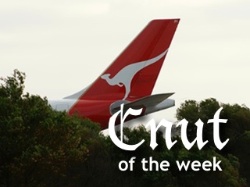
I’ve just written a piece for Crikey today about the hypocrisy of those folks in favour of Internet censorship. It begins:
Gloves-off time. The purveyors of pervasive internet censorship — handful that they are — have burned their goodwill. It’s time to call them out on their lies and demand to know why they’re not advocating the real solutions to child sexual abuse.
Bernadette McMenamin of ChildWise, you’ve crossed the line, defaming everyone who’s protested the government’s plans. “Most of these people are not fully aware of the facts and secondly, those who are aware are, in effect, advocating child pornography,” you said. How dare you!
Ms McMenamin, to really stop child abuse we need to spend our resources efficiently. Let’s run through it one more time. And let’s skip those hysterical, made-up “statistics” you still peddle. Child abuse is bad enough without heading into your paranoid fantasyland.
It continues in that vein. It’s not behind Crikey‘s paywall so it’s free to read.

